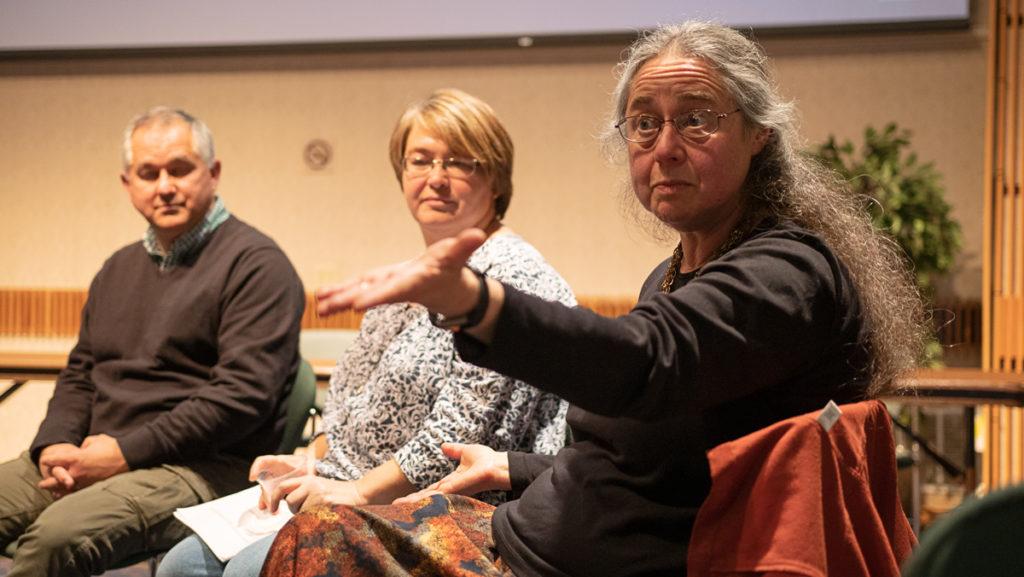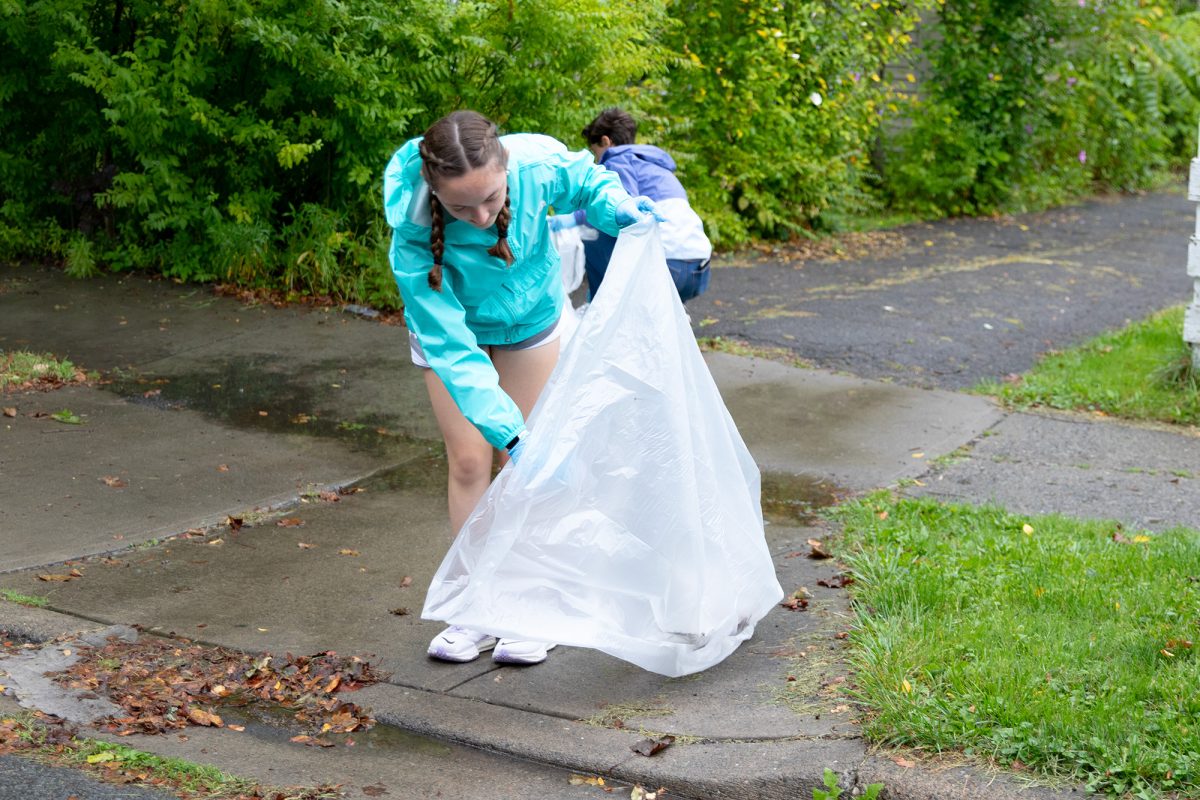After five years of reviewing Ithaca College’s Integrative Core Curriculum (ICC), the college has decided to implement changes to address student and faculty concerns and streamline the ICC.
Students who are enrolled for Fall 2022 and after will not have to pick an ICC theme, create an electronic portfolio (e-portfolio) or complete Complementary Liberal Arts coursework (CLA) through the ICC. Current students — the Class of 2022 through 2025 — will still have their theme, an e-portfolio and CLA coursework as changes to curriculum cannot be made retroactively. However, accommodations and reductions to requirements have been made to ease the process.
The college created the ICC in 2013 because it did not have general education requirements. Susan Adams Delaney, director of the ICC and associate professor in the Department of Writing, said the ICC was formed so students could make connections across schools rather than studying in only one area.
“Creating opportunities for students to practice [integrative learning and reflection] explicitly and work on it is so important to what we do,” Adams Delaney said.
The Provost’s Task Force on ICC Revision was a 19-member committee of staff, faculty and students. The task force reviewed, evaluated and developed proposals for the changes to the ICC. David Gondek, associate professor in the Department of Biology, who was a member of the task force, said he got involved with the ICC when he taught a capstone class in 2017 with the first class of students who had the ICC during all four years of their undergraduate education.
“They [students] had a lot of really good feedback,” Gondek said. “I was like, ‘We should try to implement that feedback.’ … It took five years from that point to implement that and sort of bring together different teams of people in order to make new things happen.”
The ICC currently has six themes and students have to take classes in four different perspectives: creative arts, humanities, natural sciences and social sciences within the chosen theme.
Starting in Fall 2022, freshmen will not have to choose one theme to complete their four perspectives under. The themes will still exist if students want to follow them, but Gondek said student and faculty surveys found that students were frustrated by the limitations of having to choose one.
“What is changing is some of the structural requirements,” Gondek said. “The program was unbalanced, and it was structurally unbalanced from the very beginning.”
A department can now determine if it wants to align with a perspective so majoring in a program could count for one out of the four perspectives, which would require students to take classes in just three perspectives.
Students who still have a theme can fill out a Petition for ICC Designation Exception to make a class outside of their theme count for their ICC perspectives requirements before or after they take the course.
Sophomore Jude Butler said they did not know that form was available.
“I’ve had classes that I feel could fit under Identities, but it’s under Mind, Body, Spirit or something like that,” Butler said. “And I want to take it [the class] but I don’t have room for it. I think it’s [ICC] good to have students get a well rounded approach to their academics, but I think there’s probably a better way to do that.”
The ICC requires 12 additional credits of CLA coursework which will still be required for current students, but will no longer be a requirement for incoming students. The e-portfolio used to require an artifact and reflection from every class taken through the ICC. Now, current rising sophomores to graduating seniors just need an artifact and reflection for the CLA and Capstone requirements. Adams Delaney said making sure students have a space for reflection will be important to embed into curriculums for incoming students.
Gondek said less than 30% of faculty were offering any commentary or help with the e-portfolio.
“What ended up happening is that students didn’t do it, and they would wait until their senior year, to get their capstone or worse and not realize that this is a graduation requirement, and then have to reach back to find artifacts over those four years,” Gondek said.
Senior Leo Baumbach said he is graduating in December 2022 but has not started working on his e-portfolio yet.
“I don’t know why it needs to be a documented thing,” Baumbach said. “I don’t know why I have to prove that I’ve learned things except to a professor [which I already] proved in the class that I’ve passed.”
Gondek said the final proposal is not what he had originally thought of when it first came out but said he thinks this revision is a great example of compromise.
“We collected all the data together and said ‘These are the problems, let’s do something,’” Gondek said. “So hopefully, we’ve addressed some of those problems.”








